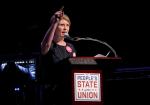
Dan's sober and sobering comment on why he opposed an endorsement by DSA of the Cynthia Nixon campaign to dethrone Andrew Cuomo, New York's corporate deny-the-corporate-class-nothing's two-term governor [see "Why I voted Against Endorsing Cynthia Nixon"] is sharply and smartly posed. It deserves a similar if brief reply, one crafted in what I hope encapsulates the same spirit.
review
 This memoir of sorts by Fordham University sociology professor Heather Gautney, who became a policy fellow in Bernie Sanders’ Washington DC office and a volunteer researcher and organizer for his unexpectedly popular 2016 presidential campaign, has a very specific focus: to “offer insights from up-close work with Bernie, mixed in with historical and sociological analysis, to perform an autopsy of the 2016 election” (2). Given the sheer number of insightless (to put it mildly) autopsies that have been proffered across the political spectrum—perhaps none more useless than Hillary Clinton’s own What Happened (Simon & Schuster, 2017)—Gautney’s book is more than welcome and even slightly overdue.
This memoir of sorts by Fordham University sociology professor Heather Gautney, who became a policy fellow in Bernie Sanders’ Washington DC office and a volunteer researcher and organizer for his unexpectedly popular 2016 presidential campaign, has a very specific focus: to “offer insights from up-close work with Bernie, mixed in with historical and sociological analysis, to perform an autopsy of the 2016 election” (2). Given the sheer number of insightless (to put it mildly) autopsies that have been proffered across the political spectrum—perhaps none more useless than Hillary Clinton’s own What Happened (Simon & Schuster, 2017)—Gautney’s book is more than welcome and even slightly overdue.
review
Why the United States has not developed a permanent socialist movement has perplexed activists and theorists for more than a century. Paul Le Blanc takes up that query as an activist who wants to see an anti-capitalism mass movement take shape in twenty-first century America. To that end, he investigates some of the moments when the possibility of a significant left presence in the United States seemed at hand. He focuses on what made those movements viable and what thwarted their long-term success. The volume’s fourteen essays were written over a period of thirty years, from 1986 to 2015.
review

More than a hundred years ago, the muckraking journalist Upton Sinclair worked undercover for several weeks in the cattle slaughterhouses of Chicago. The result was his melodramatic but revelatory novel The Jungle, a work Jack London called the “Uncle Tom’s Cabin of wage slavery.” Sinclair’s narrative depicted the brutal working conditions endured by East European immigrants on the killing floor, engaging in back-breaking, dangerous, and tedious labor for subsistence wages.
review

Steve Fraser is a weathered veteran of the New Left and many subsequent movements, author of shrewd books on the acquisitive ruling class and also of the outstanding biography of famed left-leaning labor giant Sidney Hillman, among other works. Here he once again ranges far, but also comes close to home, his own personal home space.
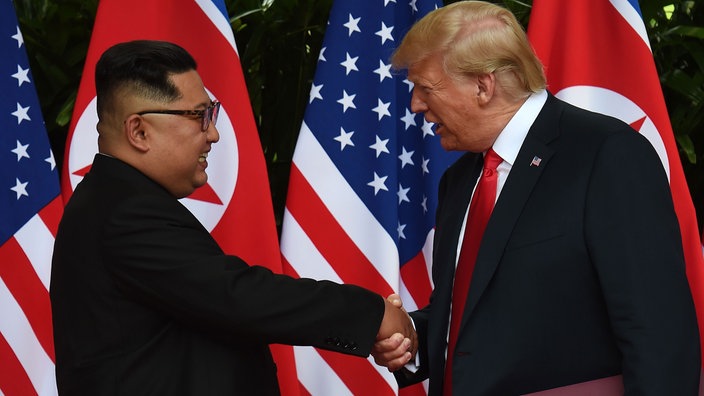
After the Singapore meeting between Trump and Kim Jong-un, questions loom large. What is the path ahead for North Korea? What chances are there for a lasting peace on the Korean Peninsula? South Korean socialists weigh in.
Introduction and My Experiences
“It is our duty to fight for our freedom. It is our duty to win. We must love and protect one another other. We have nothing to lose but our chains”.
You may recognize this as the rallying cry for the Black liberation movement in the United States, as written by Assata Shakur.
By: Dan La BotzJuly 30, 2018
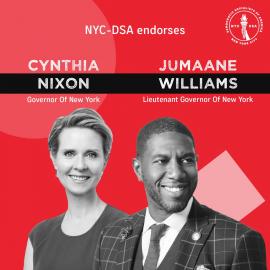
The leadership of the New York City chapter of the Democratic Socialists of America (DSA) voted this past weekend by a two-thirds majority to endorse Cynthia Nixon in the Democratic Primary race for New York State governor. The decision reflected similar majorities for Nixon among the total membership of the New York City branches. An accompanying motion also passed that linked DSA’s work on the Nixon campaign to the Julia Salazar campaign in the Democratic Primary for State Senate and tied it to our organization’s support for the New York State Health Act and the a city campaign create for expanded rent stabilization.
Since the majority of my fellow New York City socialists voted to endorse Nixon, I feel obligated as a member of the City Leadership Committee (CLC) to explain to our members why I cast my vote against, as did eleven other members of the 34-member body, while one person abstained.
An Interview with Lawrence Brown on Community Trauma and Healing

Lawrence Brown associate professor of public health in the School of Community Health and Policy at Morgan State University. He is the grandson of sharecroppers who lived in the Mississippi Delta and a native of West Memphis, Arkansas. He is a historian, critical geographer, and political economist who sees public health from a critical, interdisciplinary perspective and advocates for holistic approaches to healing the Black communities of Baltimore. His book The Black Butterfly: Why We Must Make Black Neighborhoods Matter (Johns Hopkins Press) is forthcoming.

Like the Arab Spring, the U.S. “Education Spring” was an explosive wave of protests. Statewide teacher walkouts seemed to arise out of nowhere, organized through Facebook groups, with demands for increased school funding and political voice for teachers. Though the walkouts confounded national media outlets, which had little idea how to explain or report on the movements, for parent and teacher activists who have been organizing against reforms in public education over the past four decades, the protests were understandable, if unexpected. What was surprising was their breadth of support (statewide), their organizing strategy (Facebook), and their breathtakingly rapid spread.
A Clash of Classes and a Brewing Perfect Storm
 Labor is prior to, and independent of, capital. Capital is only the fruit of labor and could never have existed if labor had not first existed. Labor is the superior of capital and deserves much the higher consideration. – Abraham Lincoln
Labor is prior to, and independent of, capital. Capital is only the fruit of labor and could never have existed if labor had not first existed. Labor is the superior of capital and deserves much the higher consideration. – Abraham Lincoln

The Federal Reserve Board, the bankers’ bank, has put out figures and reports showing that even before the Trump regime, the rich were acquiring a larger share of the nation’s total income and wealth. The September 2017 Federal Reserve Bulletin reports that “the distribution of income and wealth has grown increasingly unequal in recent years.”1 Other government reports show that many continue to live in poverty and lack shelter and an adequate amount of food.

Sitting alone in my room watching videos on YouTube, hearing sounds from across the hall of my roommate watching Netflix, the obvious point occurs to me that a key element of the demonic genius of late capitalism is enforcing a crushing passiveness on the populace.
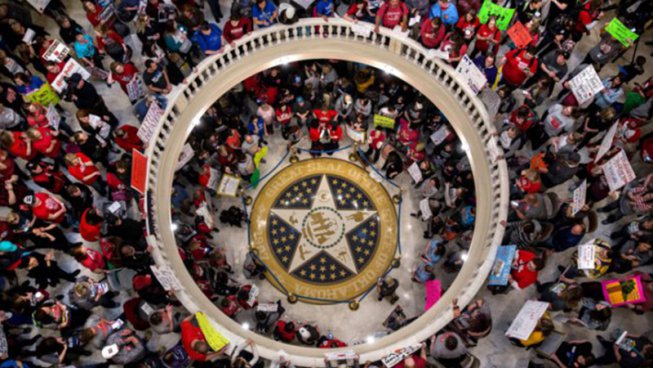
Left Voice speaks with Marxist labor historian Nelson Lichtenstein on the lessons of the Teachers’ Spring and the signs of a resurgent labor movement in the U.S.
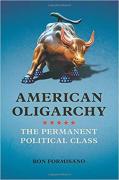
Ron Formisano. American Oligarchy: The Permanent Political Class. Urbana, Illinois: University of Illinois Press, 2017. Notes. Index. $19.95
Consumers of left-wing media are well aware that America is an oligarchy, not a democracy. Everyone with a functioning cerebrum, in fact, should be aware of it by now: even mainstream political scientists recognize it, as shown by a famous 2014 study by Martin Gilens and Benjamin I. Page. Nevertheless, it is important to continue to publicize the oligarchical character of the United States, in order to delegitimize the institutions that have destroyed democracy (insofar as it ever existed) and inspire people to take action to restore it. Ron Formisano’s book American Oligarchy: The Permanent Political Class (2017) is a valuable contribution to this collective project.
By: Dan La BotzJuly 23, 2018
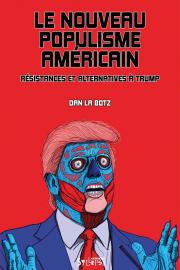
Dan La Botz is a member both Solidarity and of the Democratic Socialist of America (DSA), and a co-editor of New Politics. Trained as a historian of the United States and Mexico, he is also a teacher in the graduate Labor Studies program of the Murphy Institute of the City University of New York. New Politics interviews him here about his new book The New American Populism: Resistance and Alternatives to Trump (Nouveau populisme américain: Résistances et alternatives à Trump).
New Politics: You’ve written a book on Donald Trump and the Resistance that most of won’t be able to read because it has only been published in French. In this book you discuss both the rise of the new populism of Sanders and Trump and its social and historical roots, but you also look at the Resistance and discuss its strengths and weaknesses, as well as examining the strategies of the left and its future. That’s a lot. Tell us a little about your book. What distinguishes it from the many books on Trump that have hit the market since he became president?

— Reprinted from New Politics, vol. VI, no. 3, #23, Summer 1967 (printed June 1968)
At 4 am on April 30 [1968], my wife and I stood with tears streaming down our faces on the corner of Amsterdam Avenue and 117th Street, watching the last of the Fayerweather Hall sit-ins being tossed into waiting police vans. We were not the only ones crying, nor were the tears merely those of pity or self-pity. There was also anger, frustration, and actual joy. The incredible—and inevitable—had happened; the “Big Bust” had come. Seven hundred and twenty student and faculty protesters were under arrest; more than 130 had been beaten up, some quite badly. The last illusions about what was happening were shed.
From East Asia to the Middle East and from South Africa to Europe

Adapted from a presentation to the Chicago Convention of the International Marxist-Humanist Organization, July 13, 2018.
Reflections on AFT's national convention
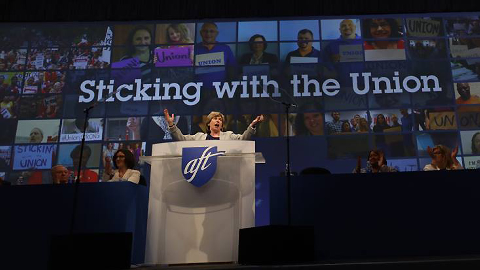
Reflecting on the days I spent as a delegate during the AFT national convention in Pittsburgh (held July 13-16), I was reminded of the fall of the Berlin Wall and the collapse of Soviet Communism in 1989-90. No one predicted it, and it seemed to come out of nowhere. But peace activists in the West who organized international support for struggles of dissidents in the Soviet Union and Eastern Europe saw the social ferment.

2,342 refugee and migrant children were kidnapped at the hands of the state at the US-Mexico border between May and June. Attorney General Jeff Sessions announced a zero tolerance policy that separated mainly Central American refugee children from their parents, as migrant adults were criminally prosecuted with many thrown into federal prisons. Hundreds are toddlers under the age of 4 or even babies as young as 4 months old. The average age of the children is 8. The regime also lied and said that parents who asked for asylum at regular border crossings would not be separated from their children while they did exactly that.

When I was a union rep, one of my most challenging assignments was assisting a Communications Workers of America (CWA) bargaining unit at a Boston-area telemarketing firm. Most CWA members in New England had call center jobs at the phone company, with good pensions, health insurance, and full-time salaries. As service reps, they fielded in-coming calls from customers with problems, questions, or new orders to place. In contrast, the telemarketing staff only interacted with the public, on behalf of various clients, via out-bound calling. Like the workers depicted in Boots Riley’s hilarious new film, Sorry to Bother You, they made cold calls to people who did not want to bothered, at dinner time or anytime, with a pitch for a new product, service, or donation to a political cause.

 This memoir of sorts by Fordham University sociology professor Heather Gautney, who became a policy fellow in Bernie Sanders’ Washington DC office and a volunteer researcher and organizer for his unexpectedly popular 2016 presidential campaign, has a very specific focus: to “offer insights from up-close work with Bernie, mixed in with historical and sociological analysis, to perform an autopsy of the 2016 election” (2). Given the sheer number of insightless (to put it mildly) autopsies that have been proffered across the political spectrum—perhaps none more useless than Hillary Clinton’s own What Happened (Simon & Schuster, 2017)—Gautney’s book is more than welcome and even slightly overdue.
This memoir of sorts by Fordham University sociology professor Heather Gautney, who became a policy fellow in Bernie Sanders’ Washington DC office and a volunteer researcher and organizer for his unexpectedly popular 2016 presidential campaign, has a very specific focus: to “offer insights from up-close work with Bernie, mixed in with historical and sociological analysis, to perform an autopsy of the 2016 election” (2). Given the sheer number of insightless (to put it mildly) autopsies that have been proffered across the political spectrum—perhaps none more useless than Hillary Clinton’s own What Happened (Simon & Schuster, 2017)—Gautney’s book is more than welcome and even slightly overdue.


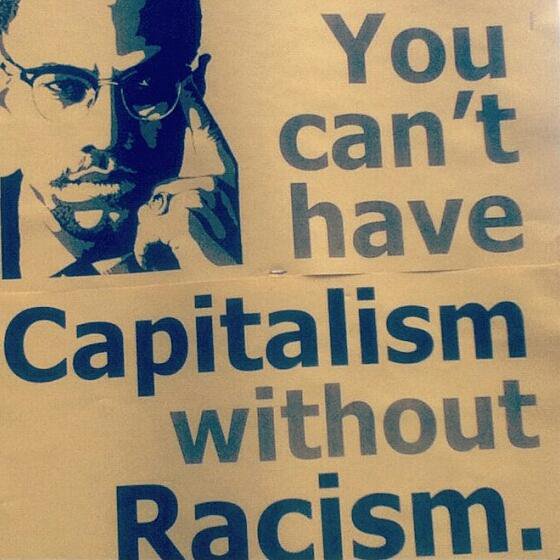



 Labor is prior to, and independent of, capital. Capital is only the fruit of labor and could never have existed if labor had not first existed. Labor is the superior of capital and deserves much the higher consideration. – Abraham Lincoln
Labor is prior to, and independent of, capital. Capital is only the fruit of labor and could never have existed if labor had not first existed. Labor is the superior of capital and deserves much the higher consideration. – Abraham Lincoln









